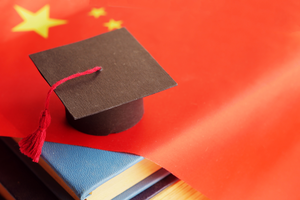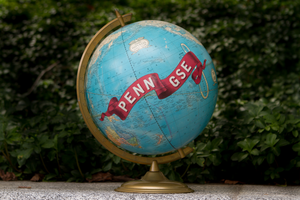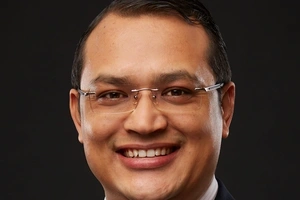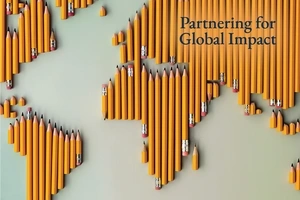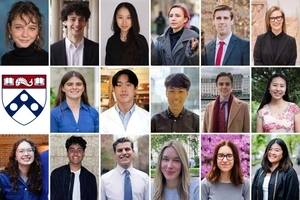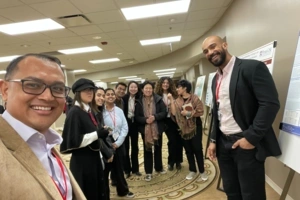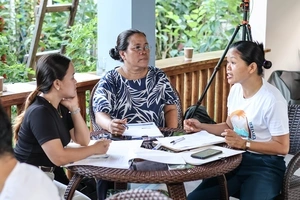When she started B4 Youth Theatre in 2010, Jasmine Blanks Jones wanted to create a theater camp where Liberian youth could amplify their voices as members of their community and use theater to create change.
When the Ebola virus arrived in the West African country in 2014, Blanks Jones and B4 (Burning Barriers Building Bridges) saw a chance to help stop the spread of the virus. Teaming with UNICEF in Liberia, artists from age 10 to 18 created plays that promoted good public health practices.
Performing in public markets, these short plays about subjects like how to get a sick relative to the hospital reached more than 300,000 people. More importantly, after the performances, people in the crowd would tell the actors what they were hearing about how Ebola spread. The actors would relay these stories, which often contained misinformation or conspiracy theories, to public health officials.
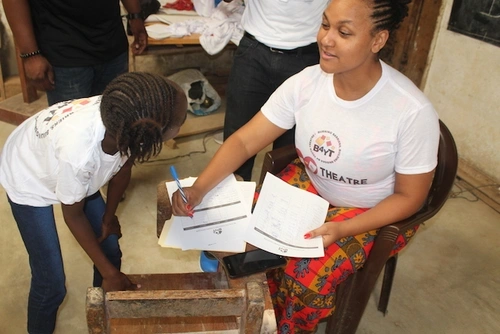
These conversations revealed a gap between what officials said people should do, and what was possible in some neighborhoods. That led to changes in both messaging and public health practice. Ultimately, these changes helped save lives.
Blanks Jones is now a doctoral student in Penn GSE’s Education, Culture, and Society program and Penn’s Africana Studies department. She is also a Robert Wood Johnson Health Policy Scholar. While Blanks Jones remains B4’s Executive Director, B4’s day-to-day operations are overseen by the National Director.
As the COVID-19 virus started to spread around the world, B4 went back into action. Before the need to socially isolate, B4 youths wrote and recorded short public health films, and they are now experimenting with films shot in multiple locations.
We talked with Blanks Jones from her home in Baltimore about the project, the role of art in public health, and how lessons from B4’s productions during the Ebola crisis could be applied to stop the spread of misinformation in the US and elsewhere.
Q: When Ebola hit, what did B4 do?
A: We have a model that teaches young people to write plays based on community organizing principles. We started creating plays about how to stop the spread of the virus, and eventually partnered with UNICEF.
There was a lot of misinformation that we had to combat. Some people thought the government was overstating the Ebola danger. Other people didn’t want to go to a clinic if they showed symptoms, or didn’t want a family member to go to the clinic, because they believed a clinic was just a place to go to die, as many local clinics were under-resourced in terms of staffing and equipment.
As we performed these plays, new questions came up. How do I get a sick family member to a clinic? Don’t take them yourself, put them in a taxi. What if there is no taxi? If you are a taxi driver, how do you safely take an Ebola patient to the clinic? Can I still drive for other passengers after carrying an Ebola patient?
The youth performers were able to funnel these questions from local communities back up to public health officials. Those conversations helped lead public health officials to redirect more than 10,000 pounds of medical supplies secured by B4 volunteers and donors abroad so they could be used more efficiently. Meeting these needs built trust in communities, and receiving community concerns made it possible to improve messaging that could be successfully translated for similar communities in other areas.
There was a lot of stigma around Ebola, concerning both who was likely to get it and who survived it. In some cases, survivors were attacked. So we created plays to try and reduce that stigma.
Our artists learned how to reach communities where they are, how to break down fear, and how to build civic trust when it’s very low.
Q: As of April 24, there were just over 100 COVID-19 cases in Liberia, according to the UN. What concerns have you heard from your friends, colleagues, and students there?
A: There’s a fear that this could be worse than Ebola, for several reasons. You could see the physical symptoms of an Ebola patient in a way you can’t with this virus.
During the Ebola outbreak, international organizations were able to send doctors and resources to Liberia. Because so many other areas of the world have been hard hit, that might not happen again at the same scale.
Liberia just doesn’t have the medical infrastructure of a country like the US. Even though public health officials there have systems for contract tracing and other techniques that the US is struggling to implement, the Liberian medical system could be decimated if the infection rate spikes.
Q: What is B4 doing this time?
A: Now that people in Liberia are social distancing, our artists are experimenting with ways to tell stories while performing remotely.
During the Ebola crisis, we were able to perform in public markets and other public venues. Because of the nature of COVID-19, that’s not safe. When the virus started spreading elsewhere in the world, our artists started creating short videos on their phones about the need to be prepared and informed, to take the virus seriously.
Only 10 percent of the population in Liberia is actively using social media, but those people tend to be highly influential in their communities. The first video was viewed by more than 22,000 people on our Facebook page!
“People are afraid and anxious. Those are things the theater can directly address because they connect on the level of human emotion.”
Q: In the US, we’ve seen protests against public health policies based, in part, on misinformation and conspiracy theories. B4 addressed similar problems during the Ebola crisis. Are there any lessons the US could learn from that experience?
A: Art and artists have a role to play right now. Especially local artists who know their own communities. People are afraid and anxious. Those are things the theater can directly address because they connect on the level of human emotion.
In the US and many Western countries, we rely a lot on people’s ability to read news and decide for themselves. But in an era of fake news and general distrust, we need all the tools in our toolbelt to communicate and create two-way conversations between the public and experts in health and policy.
When people are staging a live protest, instead of sending in law enforcement, could you bring in video boards and show a video created by artists that addresses these protestors’ specific concerns?
It would need to have entertainment value, and let people know that the emotions behind their concerns are valid, and that they are being heard. Social distancing, store closures, and other steps are being put in place for their protection. If those measures aren’t working, show a channel to address the breakdowns. Maybe there could be a mass text service rolled out with the performance? These are some of the tools we’re currently using in Liberia.
That local and specific feedback is just as important as factual, science-based information because it allows public health officials and artists to adjust their messaging. And you really have to tailor messaging to your audience.
In Liberia, we focused on different messages for different genders, ages and ethnic groups. In the US, we might need to focus on political differences, or racial differences, or geographic differences. Making that emotional connection can change minds in a way that a news briefing can’t. That can keep people safe.
Media Inquiries
Penn GSE Communications is here to help reporters connect with the education experts they need.

